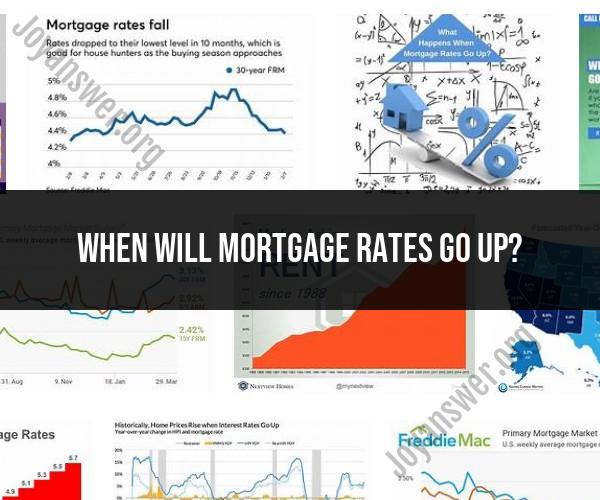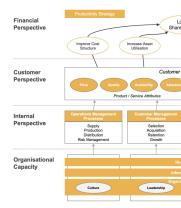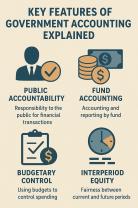When will mortgage rates go up?
Predicting mortgage rate changes involves considering a complex interplay of economic, financial, and market factors. While predicting exact rate movements is challenging, understanding the key factors that influence mortgage rates can provide insights into potential fluctuations. Here are some important factors impacting mortgage rate changes:
**1. Economic Indicators:
- Gross Domestic Product (GDP): Strong economic growth can lead to higher mortgage rates as it increases the demand for borrowing.
- Inflation: Higher inflation can push interest rates higher to maintain purchasing power. Central banks might raise rates to curb inflation.
**2. Central Bank Policies:
- Monetary Policy: Decisions by central banks, like the Federal Reserve, to raise or lower benchmark interest rates can directly influence mortgage rates.
- Quantitative Easing: Central bank purchases of bonds can impact bond yields, affecting long-term interest rates.
**3. Bond Market Movements:
- Treasury Yields: Mortgage rates are often influenced by yields on government bonds. When bond yields rise, mortgage rates may follow suit.
- Mortgage-Backed Securities: Demand for mortgage-backed securities in the secondary market can impact mortgage rates.
**4. Global Economic Conditions:
- Global Interest Rates: Rates in other major economies can influence global financial markets and indirectly affect domestic mortgage rates.
- Geopolitical Events: Political tensions and global events can lead to market volatility, impacting mortgage rates.
**5. Housing Market Conditions:
- Supply and Demand: A strong demand for homes relative to supply can push mortgage rates higher due to increased borrowing.
- Home Price Trends: Rapidly rising home prices can influence lending and borrowing dynamics, affecting mortgage rates.
**6. Credit Market Conditions:
- Credit Risk: Lenders assess borrowers' creditworthiness. In times of economic uncertainty, lenders may raise interest rates to account for higher credit risk.
**7. Market Sentiment:
- Investor Confidence: Positive or negative market sentiment can impact bond prices and yields, which in turn affect mortgage rates.
**8. Regulatory Changes:
- Government Policies: Changes in government policies related to housing and lending can impact mortgage rates indirectly.
**9. Federal Reserve Communication:
- Forward Guidance: Statements by central banks about their future policy intentions can influence market expectations for rate changes.
**10. Technological Advances:
- Digitalization: Technological advancements in financial markets can impact the speed and efficiency of trading, potentially affecting rate movements.
Given the complexity of these factors and their interactions, predicting mortgage rate changes with precision is challenging. Market conditions can change rapidly based on new economic data, events, and global developments. As a result, mortgage rates are subject to volatility, and it's advisable to consult financial experts, economists, and mortgage professionals for insights into rate trends.













